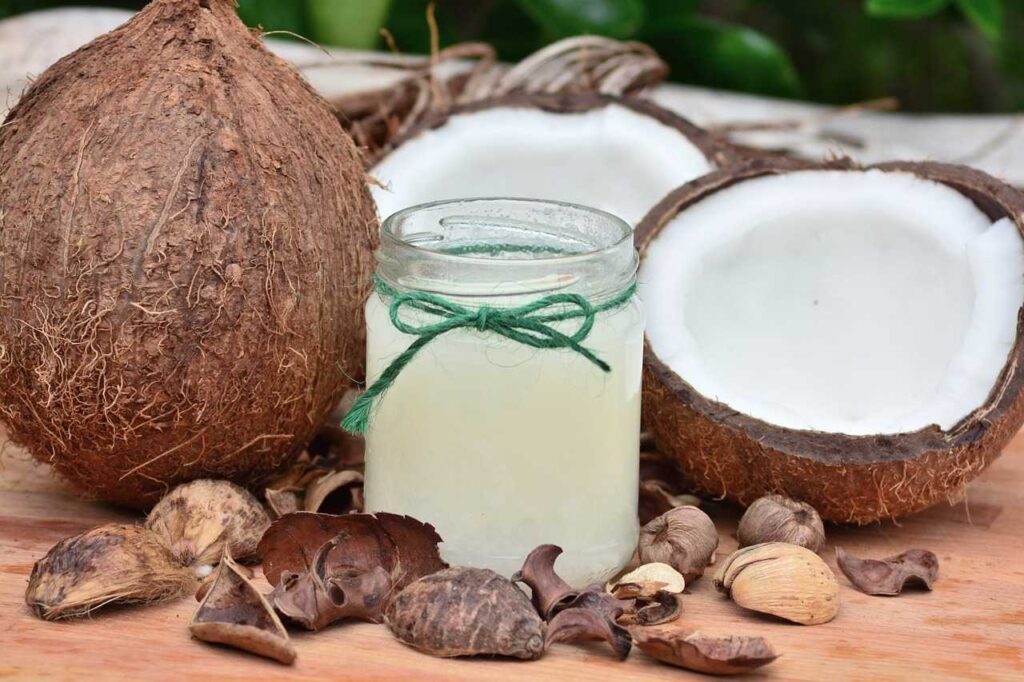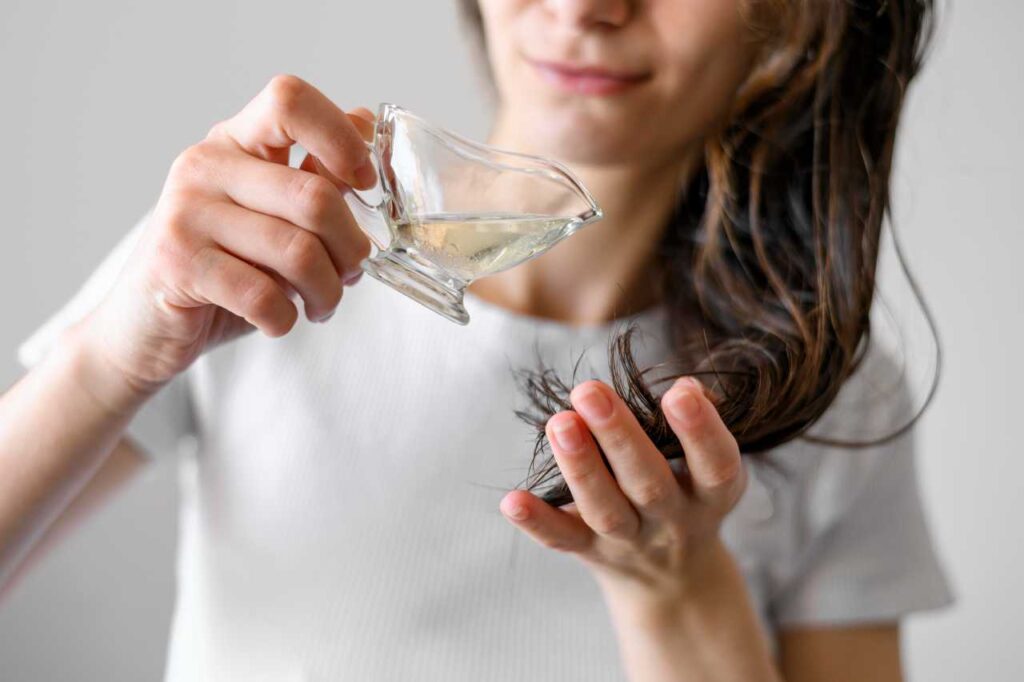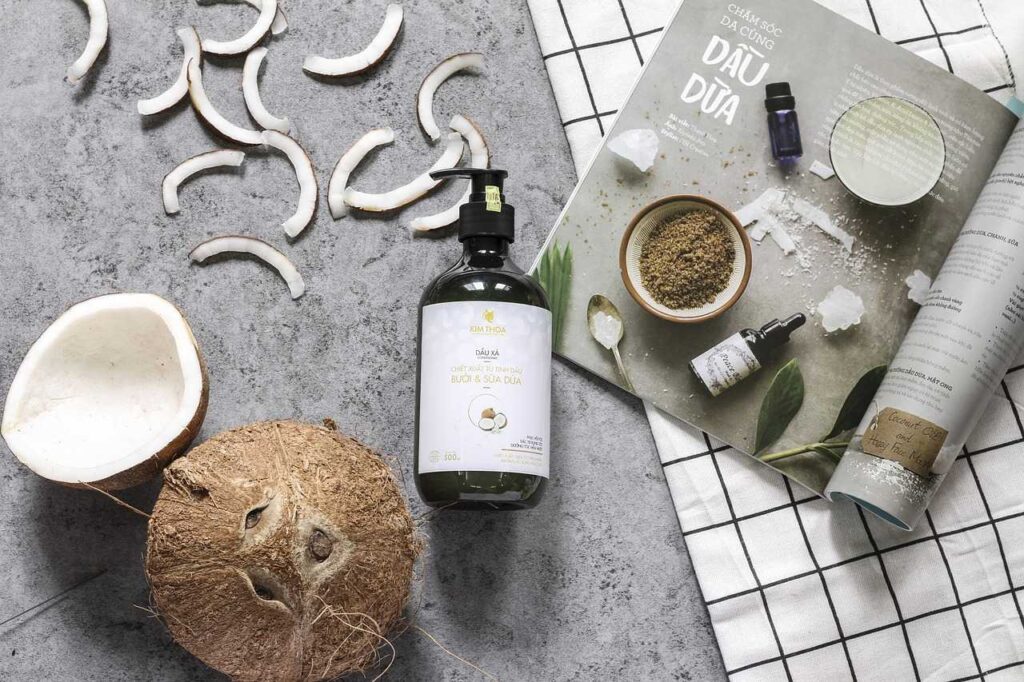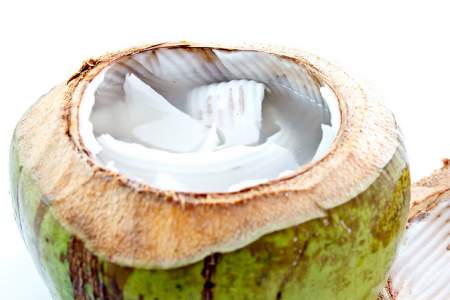Coconut water has surged in popularity not just as a hydrating drink but also as a beneficial ingredient for hair care. Packed with essential nutrients, vitamins, and minerals, coconut water offers a plethora of benefits for promoting healthier, shinier hair. This blog will explore the advantages of incorporating coconut water into your hair care routine, how to use it effectively, and practical tips for optimal results.
Hair care is an essential part of personal grooming and self-expression. With countless products available on the market, many people are seeking natural alternatives to nourish and revitalize their hair. Coconut water, often dubbed as “nature’s energy drink,” is not just refreshing; it also serves as a powerful elixir for hair health. In this blog, we will dive deep into the benefits of coconut water for hair, including its nutritional profile, various applications, and additional tips for enhancing your hair care regimen.
1. Nutritional Profile of Coconut Water

A. What is Coconut Water?
Coconut water is the clear liquid found inside young, green coconuts. It is low in calories, naturally refreshing, and rich in electrolytes, making it a popular choice for hydration. Unlike coconut milk, which is derived from the flesh of mature coconuts and is high in fat, coconut water is low in fat and calories, making it an ideal beverage for health-conscious individuals.
B. Nutritional Composition
Coconut water contains an array of nutrients that can significantly benefit hair health:
- Vitamins:
- Vitamin C: An antioxidant that supports collagen production and aids in the repair of hair tissues.
- B-Complex Vitamins: Essential for energy production and the promotion of healthy hair growth.
- Minerals:
- Potassium: Helps maintain hydration and supports cellular function.
- Magnesium: Aids in protein synthesis, which is crucial for hair growth.
- Calcium: Important for strong hair follicles.
- Electrolytes: Coconut water is naturally rich in electrolytes, such as sodium and potassium, which help maintain hydration and proper functioning of cells.
2. Benefits of Coconut Water for Hair
A. Deep Hydration
Coconut water is an excellent natural hydrator. Proper hydration is essential for maintaining the moisture balance in your hair, preventing dryness, frizz, and breakage. Regularly applying coconut water can help lock in moisture, making your hair softer and easier to manage.
B. Stimulates Hair Growth
The vitamins and minerals found in coconut water, especially vitamin C and B-complex vitamins, play a critical role in stimulating hair growth. They help nourish the hair follicles, promoting stronger hair growth and reducing hair thinning.
C. Reduces Hair Loss
Coconut water strengthens hair follicles and prevents hair loss by providing essential nutrients to the scalp. Improved blood circulation to the scalp ensures that hair follicles receive the necessary nourishment to remain healthy and vibrant.
D. Fights Dandruff
The antifungal and antibacterial properties of coconut water can help combat dandruff and scalp irritation. Applying coconut water directly to the scalp can soothe itchiness and inflammation, reducing flakiness and promoting a healthier scalp environment.
E. Adds Shine and Luster
Using coconut water as a hair rinse can significantly enhance your hair’s natural shine. The hydrating properties help smooth the hair cuticle, reducing frizz and giving your hair a radiant, glossy appearance.
F. Balances pH Levels
Coconut water can help restore the natural pH balance of your scalp and hair. A balanced pH level is essential for preventing hair damage and promoting healthy growth, making coconut water a valuable addition to your hair care routine.
G. Lightweight Conditioning
Unlike heavy oils or creams, coconut water is lightweight and easily absorbed by both hair and scalp. It provides nourishment without weighing hair down, making it suitable for all hair types, including fine or thin hair.
H. Natural Detangler
Coconut water can also serve as a natural detangler, making it easier to comb through knots and tangles. This reduces breakage and damage, especially for individuals with curly or textured hair.
3. How to Use Coconut Water for Hair

A. Coconut Water Hair Rinse
A coconut water rinse can enhance shine and hydration. Here’s how to do it:
- Ingredients:
- 1 cup of fresh coconut water
- 1 tablespoon of apple cider vinegar (optional, for added shine)
- Instructions:
- After shampooing, pour the coconut water over your hair, concentrating on the scalp and ends.
- Massage gently into your scalp for a few minutes.
- Leave it on for 5-10 minutes, then rinse with cool water.
B. Coconut Water Hair Mask
For deeper conditioning, a coconut water hair mask can provide added moisture and nourishment.
- Ingredients:
- 1 cup of coconut water
- 2 tablespoons of honey (for added moisture)
- 1 tablespoon of yogurt (for added nourishment)
- Instructions:
- Mix the ingredients in a bowl until well combined.
- Apply the mask to damp hair, ensuring even coverage from roots to ends.
- Cover your hair with a shower cap and leave it on for 30-45 minutes.
- Rinse thoroughly with shampoo and conditioner.
C. Coconut Water Scalp Treatment
For those struggling with scalp issues, a coconut water scalp treatment can provide relief.
- Ingredients:
- ½ cup of coconut water
- A few drops of essential oils (like tea tree or lavender)
- Instructions:
- Combine coconut water with essential oils in a bowl.
- Apply directly to the scalp, focusing on areas with dandruff or dryness.
- Leave on for at least 30 minutes before rinsing.
D. Coconut Water Spray
Create a refreshing coconut water spray for on-the-go hydration and nourishment.
- Ingredients:
- 1 cup of coconut water
- 1 tablespoon of aloe vera gel (for extra moisture)
- Instructions:
- Mix the ingredients in a spray bottle.
- Shake well before use.
- Spray onto dry or damp hair throughout the day for hydration and shine.
4. Tips for Incorporating Coconut Water into Your Hair Care Routine
A. Choose Fresh Coconut Water
For the best results, opt for fresh coconut water rather than packaged varieties, which may contain added sugars and preservatives. Fresh coconut water is nutrient-rich and provides maximum benefits for your hair.
B. Frequency of Use
Incorporate coconut water into your hair care routine 1-2 times per week. Adjust based on your hair type and needs—if your hair is very dry or damaged, you may benefit from more frequent use.
C. Combine with Other Natural Ingredients
Experiment with combining coconut water with other natural ingredients like aloe vera, avocado, or essential oils to enhance its benefits. For instance, mixing coconut water with aloe vera can boost hydration and nourishment for dry hair.
D. Patch Test
Before using coconut water or any new hair treatment, perform a patch test to check for any allergic reactions or sensitivities. Apply a small amount to your wrist or inner elbow and wait for 24 hours to see if any irritation occurs.
E. Monitor Results
Keep track of how your hair responds to coconut water treatments. Note improvements in hydration, shine, and overall health. Adjust your routine based on your observations to find the best combination for your hair type.
5. Addressing Common Concerns

A. Are All Coconuts Created Equal?
While all coconuts provide similar benefits, the nutritional profile can vary based on factors like maturity and variety. Young coconuts yield the best coconut water, while mature coconuts are better for coconut oil or flesh.
B. Organic vs. Conventional Coconut Water
Choosing organic coconut water may reduce exposure to pesticide residues. However, both organic and conventional coconut water can contribute to a healthy hair care routine. The choice may depend on personal preferences and budget.
C. Allergies and Sensitivities
Some individuals may have allergies or sensitivities to coconut. Common symptoms include itching or swelling. If you suspect an allergy, consult a healthcare professional for guidance.
6. Additional Hair Care Tips
A. Maintain a Balanced Diet
In addition to using coconut water, maintaining a balanced diet rich in vitamins and minerals is essential for optimal hair health. Include foods high in omega-3 fatty acids, lean proteins, and leafy greens to nourish your hair from within.
B. Stay Hydrated
Drink plenty of water daily to ensure your body and hair remain hydrated. Hydration is key to maintaining the health and vitality of your hair.
C. Avoid Excessive Heat
Limit the use of heat styling tools, as excessive heat can damage hair. If you must use them, apply a heat protectant product beforehand to minimize damage.
D. Protect Your Hair
When exposed to harsh weather conditions, such as sun or cold winds, consider wearing a hat or scarf to protect your hair from damage.
E. Regular Trims
Regular hair trims help remove split ends and promote healthy hair growth. Aim to get a trim every 6-8 weeks to maintain the health of your hair.
7. Conclusion
Coconut water is not only a delicious and hydrating beverage; it is also a powerful ally in your hair care regimen. With its rich nutrient profile, hydrating properties, and ability to promote hair growth, coconut water offers a natural solution for healthier, shinier hair. By incorporating coconut water into your routine through rinses, masks, or scalp treatments, you can enjoy its myriad benefits and achieve the hair you desire.
Whether you struggle with dryness, hair loss, or dandruff, coconut water can help address these concerns while nourishing your hair naturally. Embrace the benefits of coconut water and discover the positive impact it can have on your hair health.
Incorporating coconut water into your hair care routine can be a transformative experience. Enjoy the journey to healthier hair, and remember that the key to vibrant locks lies in consistent care and the use of natural, nourishing ingredients.

